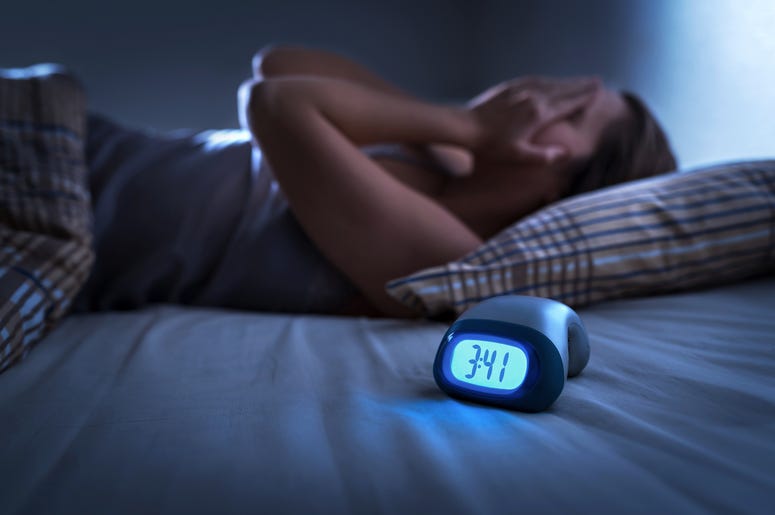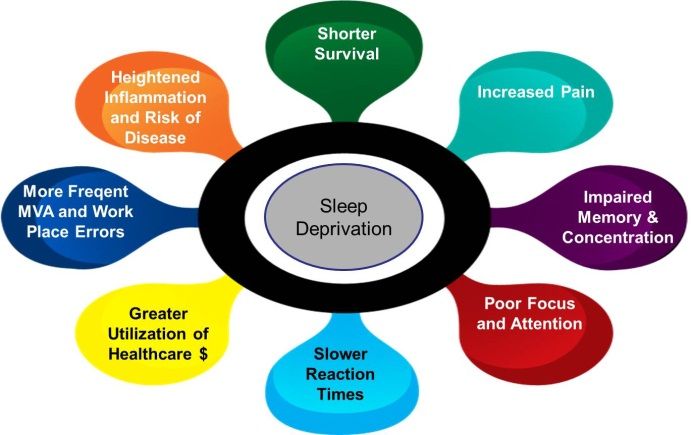Do you have trouble sleeping? Do you find it hard to fall asleep at night? Do you find it even harder to stay asleep?
If you answered yes to any of these questions, how do you function throughout the day? I can tell you…barely.
You are not alone in this battle; many people suffer from insomnia.
For the past couple of years, I have trouble not only falling asleep, but staying asleep. I have tried everything, besides sleeping pills (the prescription kind).
Hey, I figured that I have enough problems with lack of sleep, I don’t need the kind that habit forming drugs can potentially cause. I know…I know…I’m probably over thinking it, but Ummmm NO! But, I’m finally, getting back on the sleep train…whoot! whoot!
Trouble Sleeping? Not getting enough sleep can be detrimental to our health. Continue reading to learn more about the importance of sleep.
Why Can’t I Sleep?
If you are like me, you’ve asked yourself this question many times. Why do we always ask ourselves questions that we know the answers to?
This is one of those instances, because if you really think about it, you will know the answer to this question…in most cases.
Here are some reasons why you may have difficulties falling or staying asleep:
- Chronic Stress – This could be anything from a new job or loss of job, death of loved one, or illness.
- Depression/Anxiety disorders – When we have a lot on our mind, and the constant worry, this will prevent us from falling asleep. The brain just won’t shut down…constant thoughts about everything will keep anyone up at night.
- Too much caffeine – If you can’t sleep, try decreasing your caffeine intake. For me, I tend to increase my caffeine intake; because I need to stay awake during the day (from lack of sleep the time before). Can you see how this can be a cycle?
- Medical conditions – Some medical conditions, such as asthma can also cause insomnia.
- Environmental Conditions – Alcohol, noise, the room temperature and lightening could also be a factor.
Effects of Sleep Deprivation
If you don’t get enough sleep, not only can your health be affected, but other areas of your life can also be affected in a negative way.
Here are the effects of sleep deprivation:
- Weakened Immune System
- Possible weight gain
- Risk for illnesses, such as heart disease, high blood pressure, and diabetes
- Trouble concentrating or focusing on daily task
- Excessive mood swings
Read Also – Top 10 Beachbody Workouts
Signs of Sleep Deprivation
We all know when we don’t get enough sleep, right? Because we cannot wake up in the mornings.
We drag our butts out of bed, barely making it to the shower or getting ready to start our day.
Have you ever gone to work with two different shoes? I have…one black and one brown…Yes, I did.
Here are some additional signs of sleep deprivation:
- Irritability…yes just grumpy all day. If someone smiles at you, you want to ask them what the hell they are so happy about
- Constant yawning…all day
- Sleepiness…the kind that you cannot keep your eyes open…the kind that brings tears to your eyes, and you just want to have a tantrum like a toddler
- Feeling sluggish or fatigue
Hours of Sleep Needed
I envy those people who can fall asleep anywhere…at their desk at work, on the train, while they are driving, while you are speaking to them, in meetings, while watching TV, in the movie theatre, on the couch, as soon as they place their heads on their pillows…lucky people.
I also envy those people who can sleep for hours throughout the day. Well no, because too much sleep is not good either, who would say such a thing, right? It’s true though…apparently, we all need a certain number of hours of sleep based on our age, take a look below National Sleep Foundations sleep guide:
- Newborns – 14-17 hours of sleep
- Infants – 14-15 hours of sleep
- Toddlers – 11-14 hours of sleep
- Preschoolers – 10-13 hours of sleep
- School Age – 9-11 hours of sleep
- Teenagers – 8-10 hours of sleep
- Young Adults – 7-9 hours of sleep
- Adults – 7-9 hours of sleep
- Older adults (65+) 7-8 hours of sleep
Natural Sleep Supplements
There are natural supplements available that can help with Insomnia. One that my Doctor recommends is melatonin 10 mgs. melatonin is a natural substance that our bodies produces, drug free. This is a fast dissolving tablet, you can try Natrol Fast Dissolve Melatonin Tablets 10 mg, Citrus Punch
Amazon Price: $15.99. This is for a pack of 2.
I also drink SleepyTime tea right before bed, which has helped me fall asleep faster. This is caffeine free and promotes relaxation.
Sleep Tips
Here are some tips to get you on the right track:
- Stay on your sleep schedule – going to bed at the same time every night
- Start a relaxing bedtime routine, such as meditation or reading a book…wait maybe not the book…if you love reading (I always end up trying to finish the book)
- Exercise at least four times per week…try yoga
- Make your bedroom sleep ready, based on your needs
- Drink tea before bed…try chamomile
- Invest in a good mattress…trust me it’s worth it
- Try not to nap in the daytime
- No TV, Laptop, or phone allowed once you are in the bed
A good night’s sleep is an essential part of a healthy lifestyle; follow the above tips and see if it works for you. If you have insomnia for an extended period of time, please see your doctor about other options.
Why can’t you sleep? What have you tried? Please share with us.


